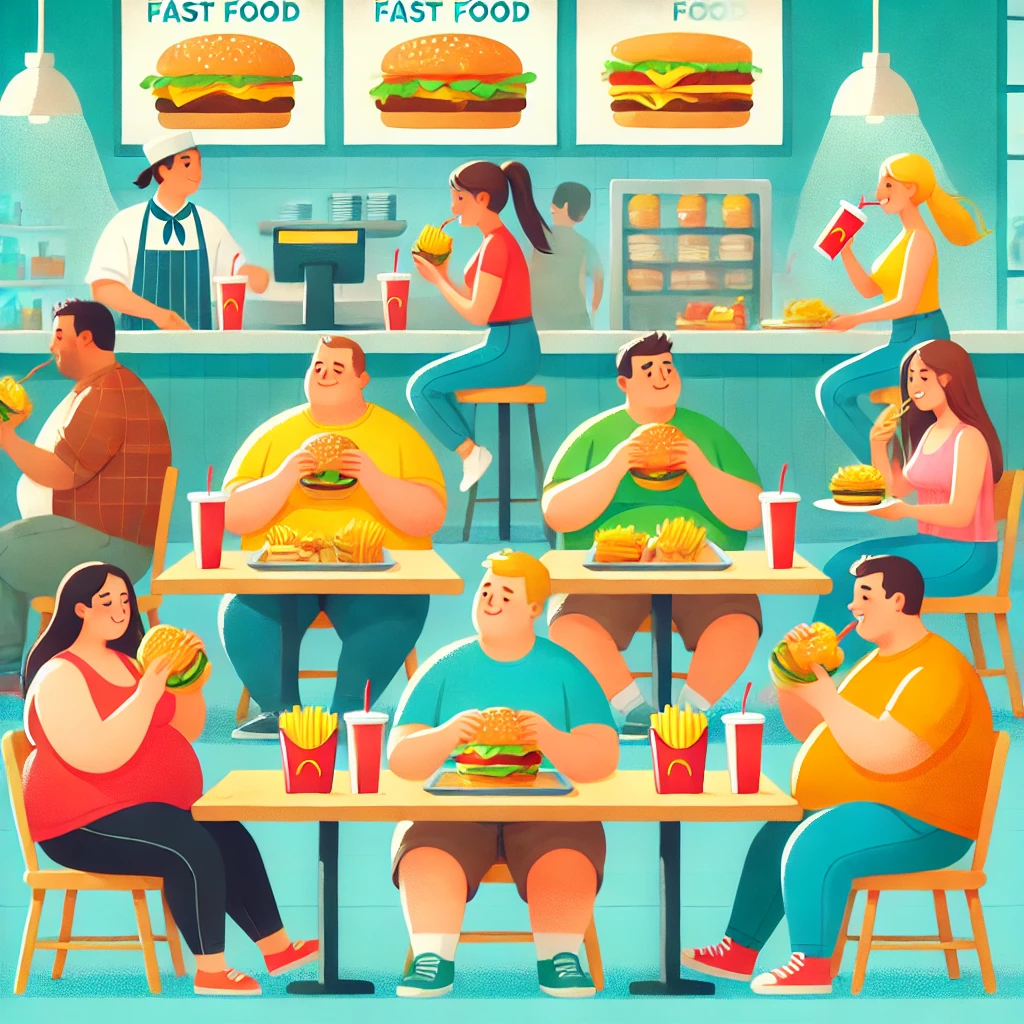We live in a world where convenience reigns supreme, and unfortunately, it’s killing us—literally. One of the biggest culprits hiding in plain sight? Seed oils. Yes, those seemingly innocent vegetable oils you use in your everyday cooking, found in everything from salad dressings to fast food. But what if I told you that consuming these oils is contributing to a silent health crisis that’s slowly wreaking havoc on our bodies and, ultimately, killing America? Let’s dive into why these are so dangerous and how they’ve infiltrated nearly every aspect of our diet.
How We Got Here
Once upon a time, people cooked with wholesome fats—lard, butter, olive oil. But as the industrial food complex grew, so did the production of cheaper, mass-produced oils extracted from seeds like soybeans, corn, and canola. They were marketed as healthier alternatives to traditional fats, and America bought it—hook, line, and sinker. After all, who wouldn’t want a “heart-healthy,” low-cost oil to use in cooking? But here’s the problem: These oils are anything but healthy.
What Are Seed Oils?

Seed oils are vegetable oils extracted from seeds like:
- Soybeans
- Corn
- Sunflower
- Canola
- Cottonseed
- Grapeseed
While they might sound natural, the process to extract oil from these seeds is anything but. It involves high heat, chemicals like hexane, and deodorizing agents to make the oil even remotely edible. By the time it hits your grocery store shelf, it’s a far cry from anything you’d want to put in your body.
The Hidden Dangers of Seed Oils
Now, let’s get into the nitty-gritty. Why are these oils so bad for you?
- High in Omega-6 Fatty Acids
- Seed oils are loaded with omega-6 fatty acids, which are inflammatory in large amounts. Our ancestors had a balanced ratio of omega-6 to omega-3 fatty acids, but modern diets have thrown this balance way off. Chronic inflammation is linked to a host of diseases, including heart disease, cancer, and diabetes.
- Easily Oxidized
- Seed oils are unstable when exposed to heat, light, and air, which causes them to oxidize. When you cook with them, the oils break down into harmful compounds that can damage your cells and lead to oxidative stress. Oxidative stress is a major factor in aging and disease.
- Full of Trans Fats
- Despite the labels claiming to be trans-fat-free, many seed oils still contain small amounts of trans fats due to the high-heat processing methods. Trans fats are a major contributor to heart disease, obesity, and metabolic disorders.
- Disrupt Your Metabolism
- Seed oils can mess with your metabolism by altering the way your body processes fats. This can lead to insulin resistance, weight gain, and increased risk of metabolic syndrome.
- Linked to Mental Health Issues
- Chronic inflammation caused by seed oils has been linked to mental health problems like depression and anxiety. The brain is highly sensitive to the fats we consume, and a diet high in omega-6 fatty acids can negatively affect your mood and cognitive function.
America’s Addiction

So why is America hooked on this? Well, they’re cheap, and they’re everywhere. From fast food chains to frozen meals, seed oils are the go-to fat for cooking and food production. They extend shelf life, make food taste better (in a greasy kind of way), and cost next to nothing to produce. But the real cost? Our health.
The widespread use of seed oils has contributed to skyrocketing rates of obesity, heart disease, and diabetes in the U.S. And let’s not forget the rising epidemic of chronic inflammatory diseases. The more we consume, the more our bodies suffer, and the worse our overall health becomes.
The Marketing Scam: How We Got Duped
One of the biggest lies we’ve been fed is that seed oils are “heart-healthy.” You’ve probably seen the ads—bottles of vegetable oil labeled with smiling doctors, promising that this stuff is good for your heart. But here’s the kicker: It’s all marketing.
The food industry has been pushing this narrative for decades, convincing people that these cheap, industrial oils are better for you than traditional fats like butter and lard. But the truth is, studies have shown that consuming seed oils can actually increase your risk of heart disease, not decrease it. So why does the myth persist? Money, of course. This industry is a multi-billion-dollar business, and they’re not going to let go of that cash cow without a fight.
Seed Oils vs. Healthy Fats: The Real Winners
So, what should you be cooking with instead? Here are some healthier alternatives to seed oils that won’t damage your body:
- Olive Oil: Rich in heart-healthy monounsaturated fats and antioxidants.
- Coconut Oil: High in medium-chain triglycerides (MCTs), which can boost metabolism.
- Butter or Ghee: Loaded with fat-soluble vitamins and healthy saturated fats.
- Avocado Oil: High in monounsaturated fats, great for cooking at high temperatures.
- Lard: Believe it or not, lard from pasture-raised pigs is an excellent source of healthy fat.
These fats are much more stable and beneficial for your body, promoting good health rather than contributing to disease.
How to Ditch Seed Oils and Reclaim Your Health
Ready to kick seed oils to the curb? Here’s how you can start:

- Read Labels: Seed oils are sneaky. They’re in everything from salad dressings to baked goods. Start reading food labels and avoid anything with soybean oil, canola oil, or other seed oils listed as an ingredient.
- Cook at Home: One of the easiest ways to avoid seed oils is to cook your meals from scratch. Use healthy fats like olive oil, butter, or coconut oil when cooking.
- Avoid Processed Foods: Most processed foods are loaded with seed oils. Stick to whole, unprocessed foods as much as possible.
- Choose Better Restaurants: If you eat out, try to choose restaurants that cook with real, whole ingredients. Farm-to-table spots or health-conscious eateries are more likely to use better oils.
- Use Healthy Oils for High-Heat Cooking: For frying or sautéing, use oils like coconut oil, ghee, or avocado oil, which are stable at higher temperatures and won’t oxidize like seed oils do.
The Final Verdict: Seed Oils Are Killing America

Let’s be real—seed oils are killing America, one meal at a time. They’ve infiltrated our diets, disguised as a “healthy” option, but the evidence is clear: They’re fueling chronic inflammation, disease, and even mental health issues. The sooner we ditch them, the better off we’ll be.
But here’s the good news: You can take control of your health by making a few simple changes. Start by eliminating seed oils from your diet, replacing them with healthy fats, and spreading the word. The more we wake up to the dangers of seed oils, the faster we can kick this harmful habit to the curb and reclaim our well-being.
Let’s reclaim what is rightfully our’s in this digital noise we live in. Join us in this exploration of how deep the rabbit hole actually goes.

No responses yet